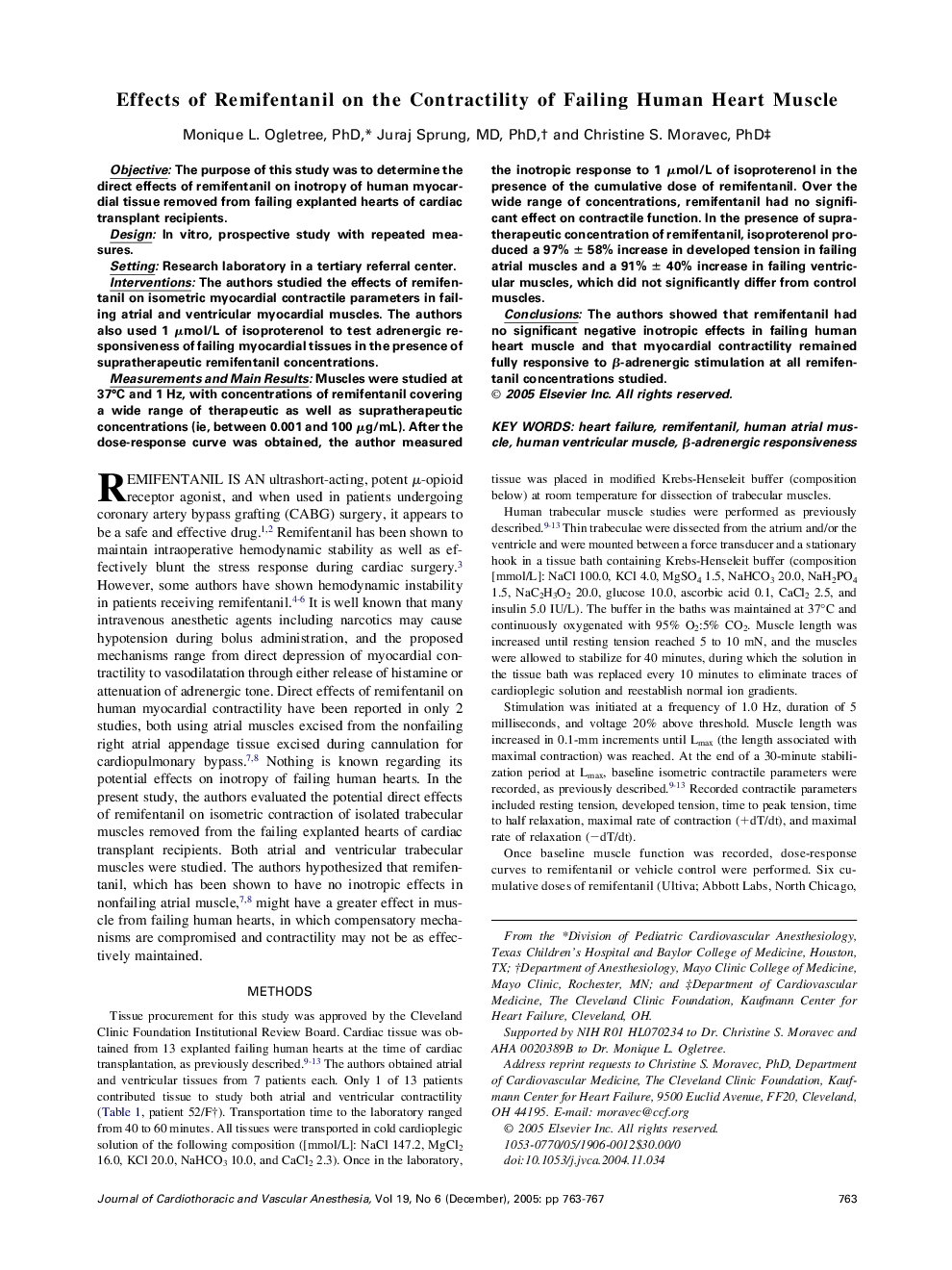| Article ID | Journal | Published Year | Pages | File Type |
|---|---|---|---|---|
| 9095120 | Journal of Cardiothoracic and Vascular Anesthesia | 2005 | 5 Pages |
Abstract
Objective: The purpose of this study was to determine the direct effects of remifentanil on inotropy of human myocardial tissue removed from failing explanted hearts of cardiac transplant recipients. Design: In vitro, prospective study with repeated measures. Setting: Research laboratory in a tertiary referral center. Interventions: The authors studied the effects of remifentanil on isometric myocardial contractile parameters in failing atrial and ventricular myocardial muscles. The authors also used 1 μmol/L of isoproterenol to test adrenergic responsiveness of failing myocardial tissues in the presence of supratherapeutic remifentanil concentrations. Measurements and Main Results: Muscles were studied at 37°C and 1 Hz, with concentrations of remifentanil covering a wide range of therapeutic as well as supratherapeutic concentrations (ie, between 0.001 and 100 μg/mL). After the dose-response curve was obtained, the author measured the inotropic response to 1 μmol/L of isoproterenol in the presence of the cumulative dose of remifentanil. Over the wide range of concentrations, remifentanil had no significant effect on contractile function. In the presence of supratherapeutic concentration of remifentanil, isoproterenol produced a 97% ± 58% increase in developed tension in failing atrial muscles and a 91% ± 40% increase in failing ventricular muscles, which did not significantly differ from control muscles. Conclusions: The authors showed that remifentanil had no significant negative inotropic effects in failing human heart muscle and that myocardial contractility remained fully responsive to β-adrenergic stimulation at all remifentanil concentrations studied.
Keywords
Related Topics
Health Sciences
Medicine and Dentistry
Anesthesiology and Pain Medicine
Authors
Monique L. PhD, Juraj MD, PhD, Christine S. PhD,
